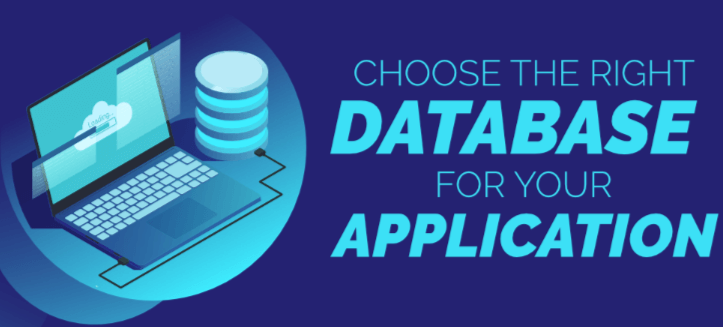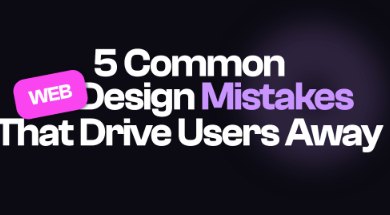How to Choose the Best Database Management Service

Introduction
In today’s data-driven world, businesses are increasingly reliant on effective database management to store, manage, and retrieve information. Choosing the best database management service is a critical decision that can impact your organization’s efficiency, security, and scalability. With a myriad of options available, each boasting various features and capabilities, the selection process can be daunting. This guide will walk you through the essential considerations for choosing a database management service that aligns with your business goals, ensuring that you make an informed decision.
Understanding Database Management Services
Before diving into the selection process, it’s crucial to understand what a database management service (DBMS) is. A DBMS is a software system that enables users to create, retrieve, update, and manage data in a database. It acts as an intermediary between the user and the database, ensuring that data is organized, stored securely, and accessible when needed. DBMSs can vary widely in their architecture, capabilities, and use cases, making it essential to choose one that fits your specific requirements.
Key Factors to Consider When Choosing a Database Management Service
Scalability and Performance
One of the most important considerations when selecting a DBMS is its ability to scale. As your business grows, so will your data needs. A scalable database management service can handle increasing amounts of data without compromising performance. Look for a DBMS that supports vertical scaling (adding more resources to a single database instance) and horizontal scaling (adding more database instances to handle the load). Also, consider the performance metrics, such as query execution time and transaction throughput, to ensure that the DBMS can meet your business’s demands.
Security Features
Data security is a top priority for any business, especially when dealing with sensitive information. The DBMS you choose should have robust security features to protect your data from unauthorized access, breaches, and other cyber threats. Key security features to look for include encryption (both at rest and in transit), user authentication and authorization, audit trails, and compliance with industry standards such as GDPR, HIPAA, or PCI-DSS. A DBMS that prioritizes security will help safeguard your business’s reputation and prevent costly data breaches.
Data Integrity and Reliability
Data integrity refers to the accuracy and consistency of data over its lifecycle. A reliable DBMS should ensure that your data remains intact and uncorrupted, even in the event of system failures or errors. Features like ACID (Atomicity, Consistency, Isolation, Durability) compliance, automated backups, and data replication are essential for maintaining data integrity. Additionally, consider the DBMS’s track record for uptime and reliability, as frequent downtime can disrupt business operations.
Ease of Use and Management
The ease of use and management of a DBMS is another critical factor to consider. A user-friendly interface, comprehensive documentation, and readily available support can significantly reduce the learning curve and administrative burden. If your team lacks extensive database management experience, consider a DBMS with automated management features, such as performance tuning, backup scheduling, and patch management. These features can save time and reduce the risk of human error.
Cost and Licensing
Cost is always a significant factor in any business decision. The pricing model of a DBMS can vary widely, from open-source options that are free to use (but may require paid support) to enterprise-level solutions with subscription-based or perpetual licensing fees. When evaluating costs, consider not only the initial investment but also the total cost of ownership, which includes maintenance, support, and potential scalability expenses. A clear understanding of the cost structure will help you choose a DBMS that offers the best value for your budget.
Support and Community
Even the most robust DBMS can encounter issues that require external support. When choosing a DBMS, consider the level of support offered by the vendor. This includes the availability of customer support, the quality of documentation, and the responsiveness of the support team. Additionally, a strong community of users and developers can be invaluable, providing access to forums, tutorials, and third-party tools. A well-supported DBMS can reduce downtime and help you resolve issues more quickly.
Integration Capabilities
Your chosen DBMS should seamlessly integrate with your existing systems and tools. This includes compatibility with your preferred programming languages, operating systems, and data analytics platforms. Integration with cloud services, such as AWS, Google Cloud, or Azure, can also be a crucial factor if your business relies on cloud infrastructure. A DBMS with strong integration capabilities will enhance your overall IT ecosystem and enable more efficient workflows.
Customization and Extensibility
Every business has unique data management needs, and a one-size-fits-all approach may not be sufficient. A DBMS that offers customization and extensibility allows you to tailor the system to your specific requirements. This can include custom data types, stored procedures, triggers, and plugins. The ability to extend the DBMS’s functionality ensures that it can evolve alongside your business, accommodating new use cases and technological advancements.
Vendor Reputation and Track Record
When investing in a DBMS, it’s important to consider the vendor’s reputation and track record. Look for vendors with a history of stability, innovation, and customer satisfaction. Research customer reviews, case studies, and industry awards to gauge the vendor’s credibility. A reputable vendor is more likely to provide a reliable product, timely updates, and responsive support, ensuring that your DBMS remains a valuable asset to your business.
Migration and Transition Support
If you’re switching from an existing database system, the migration process can be complex and time-consuming. A DBMS that offers robust migration and transition support can ease this process, minimizing downtime and data loss. Look for features like data migration tools, compatibility with your existing data structures, and professional services from the vendor to assist with the transition. Smooth migration support is essential for maintaining business continuity during the switch.
Compliance and Regulatory Requirements
Depending on your industry, you may be subject to specific regulatory requirements governing data storage and management. The DBMS you choose should help you comply with these regulations, whether they pertain to data privacy, financial reporting, or industry-specific standards. Ensure that the DBMS provides the necessary features, such as audit logging, data masking, and retention policies, to meet your compliance obligations. Failing to comply with regulations can result in legal penalties and damage your business’s reputation.
Data Analytics and Reporting
In today’s data-centric world, the ability to analyze and report on data is crucial. A DBMS that supports advanced data analytics and reporting features can provide valuable insights into your business operations, customer behavior, and market trends. Look for a DBMS that offers built-in analytics tools, integration with business intelligence (BI) platforms, and support for real-time data processing. Enhanced data analytics capabilities can give your business a competitive edge by enabling data-driven decision-making.
Flexibility and Future-Proofing
As technology evolves, so too will your data management needs. Choosing a flexible and future-proof DBMS ensures that your system can adapt to new technologies, business models, and data types. Consider whether the DBMS supports emerging trends, such as NoSQL databases, big data, and machine learning. A forward-looking DBMS will help you stay ahead of the curve and ensure that your investment remains relevant in the long term.
Cloud vs. On-Premise Solutions
One of the key decisions you’ll need to make is whether to choose a cloud-based or on-premise DBMS. Cloud-based solutions offer benefits such as scalability, reduced infrastructure costs, and accessibility from anywhere. However, they may also raise concerns about data sovereignty and control, making cloud security testing essential to ensure that your data remains protected and compliant in a cloud environment. On-premise solutions, on the other hand, provide greater control over your data and infrastructure but may require significant upfront investment and ongoing maintenance. Weigh the pros and cons of each option to determine which aligns better with your business needs and strategy.
Disaster Recovery and Business Continuity
In the event of a disaster, such as a hardware failure or cyberattack, having a robust disaster recovery plan is essential. A DBMS that supports disaster recovery and business continuity features can help you quickly restore operations and minimize data loss. Look for features like automated backups, data replication across multiple locations, and failover capabilities. Ensuring that your DBMS can support your disaster recovery plan is critical for maintaining operational resilience.
Usability Across Different Departments
Different departments within your organization may have varying data management needs. For example, the finance team may require stringent security controls, while the marketing team may need fast access to customer data for analytics. A versatile DBMS that can cater to the diverse needs of different departments will enhance collaboration and streamline operations. Consider the DBMS’s ability to create and manage different user roles, customize access controls, and provide department-specific tools and dashboards.
Training and Skill Requirements
The effectiveness of a DBMS is often determined by the skills and expertise of the team managing it. Consider the level of training and expertise required to operate the DBMS effectively. Some systems may require specialized knowledge of database languages or architecture, while others may offer more intuitive, user-friendly interfaces. If your team lacks the necessary skills, investing in training or choosing a simpler, more accessible DBMS may be necessary.
Open Source vs. Proprietary Solutions
The choice between open-source and proprietary DBMS solutions is another important consideration. Open-source DBMSs, such as MySQL and PostgreSQL, offer flexibility, community support, and cost savings. However, they may require more in-house expertise to manage and maintain. Proprietary solutions, such as Oracle and Microsoft SQL Server, typically offer more comprehensive support, advanced features, and seamless integration with other enterprise tools. Your decision should be based on your business’s technical capabilities, budget, and long-term goals.
Environmental and Sustainability Considerations
In today’s environmentally conscious business landscape, sustainability is becoming an increasingly important factor in decision-making. When choosing a DBMS, consider its environmental impact, particularly in terms of energy consumption and carbon footprint. Cloud-based DBMS solutions that utilize green data centers or energy-efficient technologies can help reduce your organization’s environmental impact. Additionally, some vendors may offer sustainability initiatives or certifications that align with your company’s values and goals.
Case Studies and Real-World Examples
Before making a final decision, it’s valuable to review case studies and real-world examples of businesses that have successfully implemented the DBMS you’re considering. These case studies can provide insights into how the DBMS performs in practice, the challenges encountered during implementation, and the benefits realized. Look for case studies that are relevant to your industry or use case, as they can offer valuable lessons and guidance for your own implementation.
Future Trends in Database Management
The field of database management is constantly evolving, with new technologies and trends emerging regularly. Staying informed about these trends can help you make a more future-proof decision. For example, the rise of NoSQL databases, the increasing importance of data privacy, and the growing role of artificial intelligence in database management are all trends worth considering. By choosing a DBMS that aligns with these trends, you can ensure that your database management strategy remains relevant and competitive.
FAQs
What is the difference between a relational and a non-relational database? A relational database organizes data into tables with predefined relationships, while a non-relational database (NoSQL) stores data in a more flexible, schema-less format. Relational databases are ideal for structured data and complex queries, while non-relational databases are better suited for unstructured or semi-structured data and large-scale applications.
How important is data encryption in a DBMS? Data encryption is crucial for protecting sensitive information from unauthorized access and breaches. It ensures that even if data is intercepted, it remains unreadable without the proper decryption key. Both encryption at rest and in transit are important for comprehensive data security.
Can I migrate from one DBMS to another easily? Migrating from one DBMS to another can be complex, depending on the systems involved and the volume of data. A DBMS with robust migration tools and vendor support can ease the process, but it’s essential to plan carefully to avoid data loss or downtime.
What role does cloud computing play in modern DBMS solutions? Cloud computing allows DBMSs to offer scalable, on-demand resources, reducing the need for physical infrastructure. Cloud-based DBMS solutions can provide flexibility, cost savings, and accessibility, making them a popular choice for many businesses.
How can I ensure my DBMS is compliant with industry regulations? To ensure compliance, choose a DBMS that offers features such as audit logging, data encryption, and retention policies. It’s also important to stay informed about the regulations relevant to your industry and to work with your vendor to implement the necessary controls.
Is it better to choose an open-source or proprietary DBMS? The choice between open-source and proprietary DBMS depends on your business’s technical capabilities, budget, and needs. Open-source DBMSs offer flexibility and cost savings but may require more expertise to manage, while proprietary solutions typically offer more support and advanced features.
Conclusion
Choosing the best database management service is a crucial decision that requires careful consideration of various factors, including scalability, security, cost, and ease of use. By thoroughly evaluating your business’s needs and the capabilities of different DBMS solutions, you can select a system that not only meets your current requirements but also supports your long-term growth and success. Whether you opt for a cloud-based solution, an on-premise system, or a hybrid approach, the right DBMS will be a valuable asset in your organization’s data management strategy.





